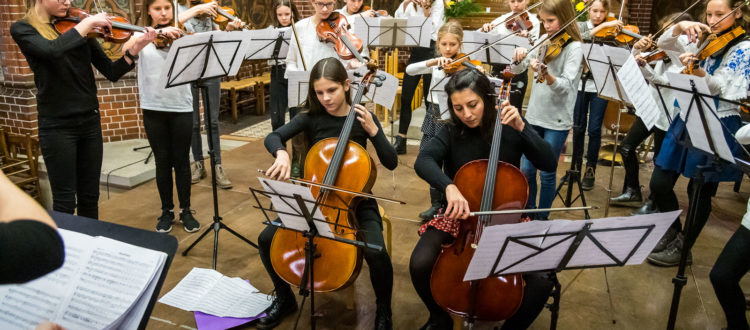🇬🇧 My child doesn’t want to practice – Tutoring for musical parents
Life in Lockdown demands a lot more from parents than usual: homework, conferences, emails and online music lessons – that’s a big challenge!
So I came up with the idea of starting a little “series” to support and guide you through these times. The plan is to inspire you every week with a little tip to make practicing a little easier.
But even now, in this little introduction, I would like to establish a few “basic concepts” with you: The motto is “trust the process” – no matter how often your child doesn’t want to practice, no matter how imperfect it may sound, no matter how much other children „accomplish”: trust the process, trust your child and trust the teacher!
You know how exciting it can be to learn something new and how quickly the enthusiasm fades out as soon as you discover what actually has to be done to reach the goal. Why should children function differently? As a violin teacher, I know this very well. I often get the feedback from frustrated parents about the violin which doesn’t sing beautifully at home… At least as often as the children are sad after the first lesson because they still can’t play a melody…
But I’ll tell you something: In the early years, the main goal of a music teacher is to help the child to build a relationship with the instrument. Yes, exactly! -> the magic word is “relationship”. No technique, no etudes, no pieces of music. It’s just about pure acquaintance, which consists of feeling, sensing and touching.
Our keywords “process” and “relationship” lead us directly to the next one: “time”.
Give your children and yourselves time to discover the instrument and the world of music!
Feel free to take some time for this little series and I will come to you with new ideas every Sunday if you like!
Your Alessia (more about me)

1.Tip of the week
Don’t punish yourselves or your child for not always knowing what to do. Just tell each other honestly that you don’t have the ideal solution and yet you can try to find one together! Statements like “Oh, you should know!” or “Just practice!” don’t really help that much and don’t improve the relationship between your child and his or her instrument. They tend to frustrate and have the opposite effect indeed.
Instead, try gentler approaches such as “I know it doesn’t sound the way you want it to. Let’s try again and if it doesn’t work, it’s not your fault.” With some children it also helps to just leave them alone and they will organize themselves.
Giving up and not practicing that day, on the other hand, is not the answer. Practice something else, mark what you want to ask the teacher and still enjoy your practice session! It’s also fun to play old pieces again – as long as you keep practicing!
In any case, it is important not to forget that you have done everything you could, that the learning process continues and that for any questions you cannot answer on your own, there is the next lesson.
Your Alessia





